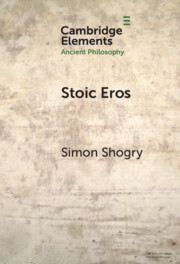1 results

Stoic Eros
-
- Published online:
- 24 January 2024
- Print publication:
- 15 February 2024
-
- Element
- Export citation

